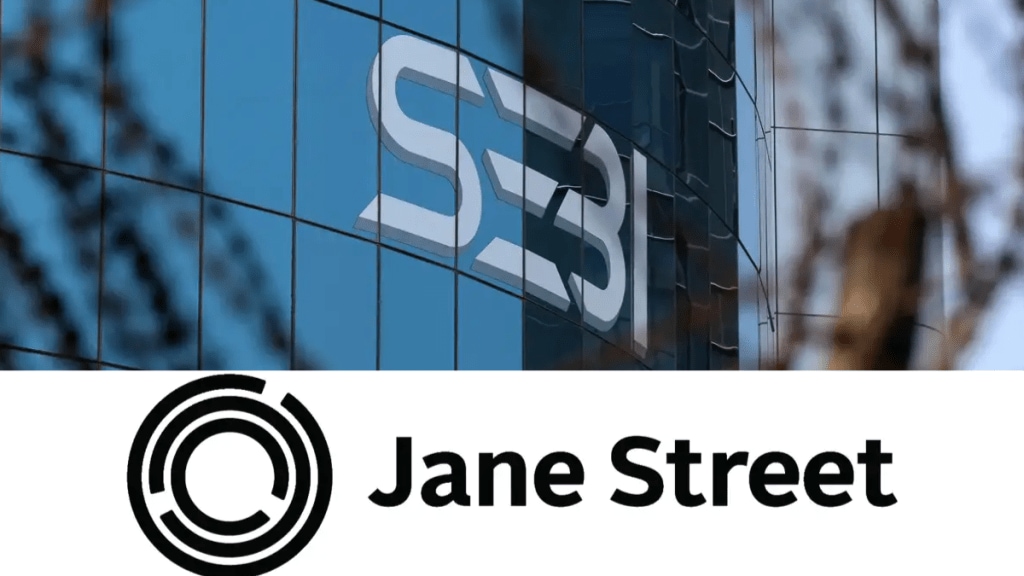With the Securities Appellate Tribunal (SAT) all set to hear US market maker Jane Street’s arguments against the Securities and Exchange Board of India’s (SEBI) interim order on Tuesday, there are strong chances that it could be the beginning of a long-drawn battle.
The stakes are very high for both: For the market regulator, this is the first time it has taken on a significant foreign portfolio investor – one of Wall Street’s biggest names – for market manipulation. The interim report, while pointing out strategies used by Jane Street and impounding Rs 4,843 crore (which was paid) – the highest-ever penalty – also made it clear that while the regulator is not against making profits in the market, it will not tolerate manipulation.
SEBI’s stance: cracking down on manipulation
Last month, SEBI Chairman Tuhin Pandey upped the ante and made the regulator’s position clear. “I know these guys are brilliant mathematicians and PhDs, but we can have PhDs from our side. We are not constrained,” Pandey told The Financial Times. Pandey also rejected Jane Street’s defence that it was engaged in standard index arbitrage. “Manipulation is where you are artificially creating arbitrage,” he said.
At the heart of the controversy is the firm’s index arbitrage strategy, one that Jane Street insists is standard and legal, but which SEBI believes may have distorted prices in the equity derivatives market.
The market regulator, which bears the burden of proving its case, seems confident. Early June, a senior SEBI source had said, “this is an open-and-shut case even for the SEC (Securities and Exchange Commission).”
Jane Street’s defence and legal complexities
For Jane Street, it is all about reputation, believe market experts. “The penalty is merely 10% of the profits it has made in India in the past couple of years. A firm, which can afford to lose millions to make multiple times that money, is least bothered about $500 million. But its reputation is at stake here – something it will fight for,” said an industry expert.
What Jane Street is relying on is the earlier report by SEBI and the National Stock Exchange that had given it a clean chit. It also believes that it complied with the regulators in good faith. However, the allegations made by SEBI, after the earlier clean chits, show regulatory bias. Mumbai-law firm Khaitan is representing Jane Street at the Tribunal.
Reports suggest that SEBI’s top leadership was not satisfied with the robustness of the first examination concluded by its own surveillance department on December 11 and chose to initiate a formal investigation towards the end of December 2024, which gives it powers to seek data from the trading firm’s custodian bank and domestic trading partner. A formal investigation is a quasi-legal process under Indian regulatory rules, in contrast to an internal enquiry.
Lawyers believe that things will not be so simple at the SAT. For one, Jane Street has to convince SAT about the relevance of the documents that it is seeking. It has appealed that “Denial of access to the complete copy of the SEBI ISD’s report is in gross violation of the principles of natural justice and the requirements for fair adjudication.”
“The principles decided by the Supreme Court (SC) in T Takano (Ricoh India MD & CEO) vs SEBI establish that it is required to disclose all relevant material, including investigation reports relied upon, to the noticee,” Anand Shrivastava, Partner at Sagus Legal said.
Earlier, the SC in Reliance Industries (RIL) vs SEBI had emphasised that SEBI must disclose all material relied upon and cannot “cherry-pick” evidence, establishing binding precedent on procedural fairness.
Meanwhile, the final order of the SEBI, as and when passed, is also at play here. “Such a penalty, if imposed, can notionally go up to three times the profits which are sought to be disgorged,” said Jayesh H, co-founder of Juris Corp, a law firm which advises foreign investors (FPIs) on capital markets.
Mayank Bansal, a Dubai-based hedge fund manager, who was among the investors who complained to SEBI added that “Impounding just the gains is like travelling ticketless in a train and the penalty on being caught being the price of the ticket.”

